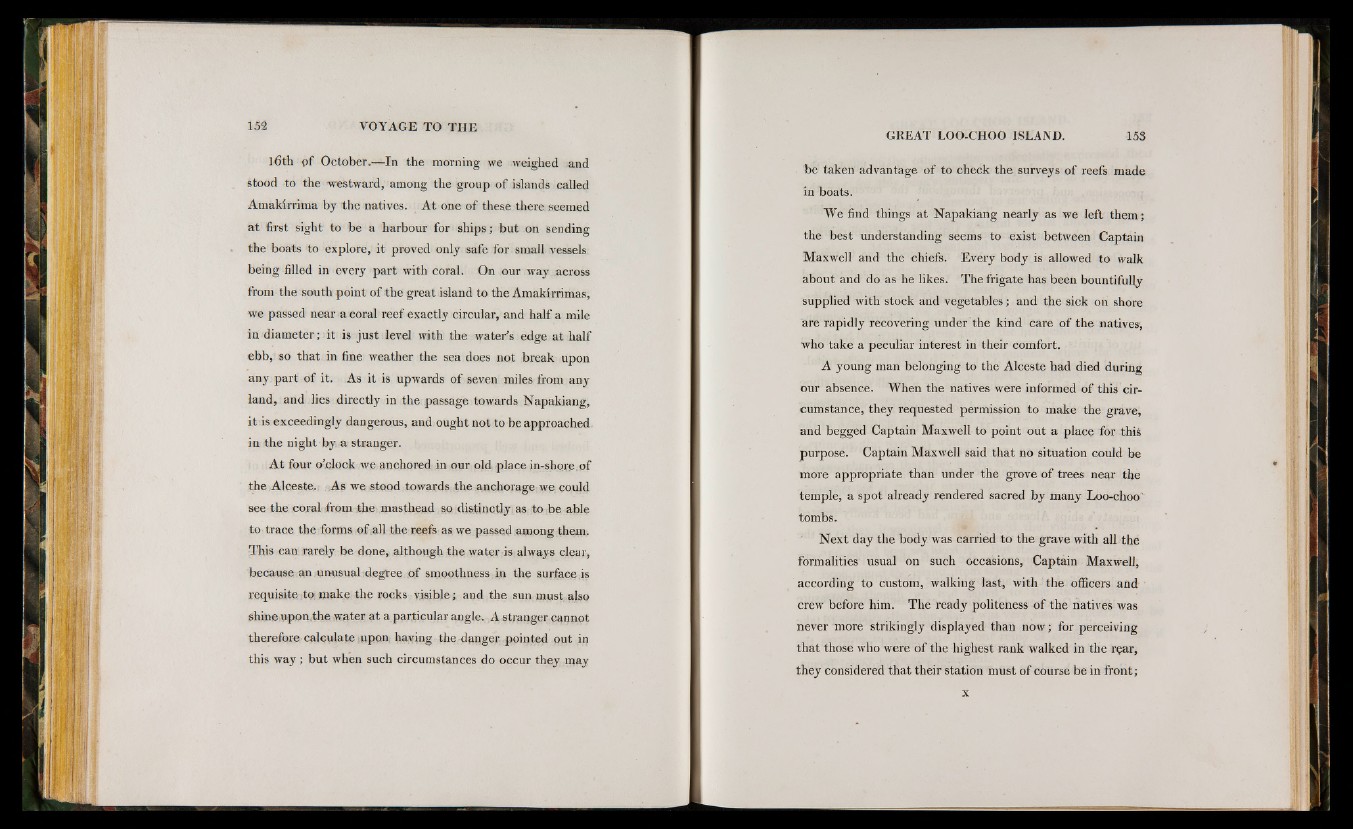
16th pf October.—In the morning we weighed and
stood to the westward, among the group of islands called
Amaklrrima by the natives. At one of these there seemed
a t first sight to be a harbour for ships; but on sending
the boats to explore, it proved only safe for small vessels
being filled in every part with coral. On our way across
from the south point of the great island to the Amakirrimas,
we passed near a coral reef exactly circular, and half a mile
in diameter; it is just level with the water’s edge at half
ebb, so that in fine weather the sea does not break upon
any part of it. As it is upwards of seven miles from any
land, and lies directly in the passage towards Napakiang,
it is exceedingly dangerous, and ought not to he approached
in the night by a stranger.
At four o’clock we: anchored in our old place in-shpre.of
the Alceste. As we stood towards the anchorage we could
see the coral from the masthead so distinctly, as to be able
to trace the forms of all the reefs as we passed among them.
This can rarely be done, although the water is: always clear,
because an unusual .degree ,of smoothness in the surface is
requisite to. make the rocks visible; and the sun must also
shine upon,the water at a particular angle. A stranger cannot
therefore calculate upon having the danger pointed put in
this way; but when such circumstances do occur they may
be taken advantage of to check the surveys of reefs made
in boats.
We find things at Napakiang nearly as we left them;
the best understanding seems to exist between Captain
Maxwell and the chiefs. Every body is allowed to walk
about and do as he likes. The frigate has been bountifully
supplied with stock and vegetables; and the sick on shore
are rapidly recovering under the kind care of the natives;
who take a peculiar interest in their comfort.
A young man belonging to the Alceste had died during
our absence. When the natives were informed of this circumstance,
they requested permission to make the grave,
and begged Captain Maxwell to point out a place for this
purpose. Captain Maxwell said that no situation could be
more appropriate than under the grove of trees nepr the
temple, a spot already rendered sacred by many Loo-choo'
tombs.
Next day the body was carried to the grave with all the
formalities usual on such occasions, Captain Maxwell,
according to custom, walking last, with the officers and
crew before him. The ready politeness of the natives was
never more strikingly displayed than now; for perceiving
that those who were of the highest rank walked in the rear,
they considered that their station must of course be in front;
x